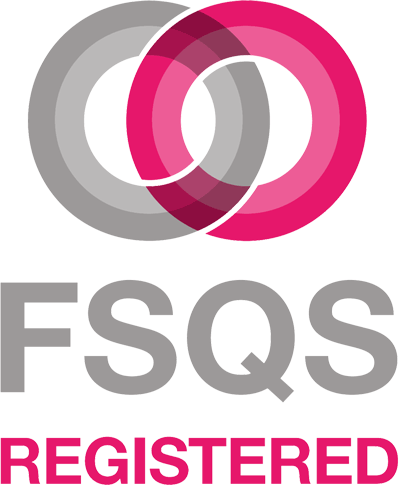The library as classroom: using Special Collections as teaching material
If you could not attend this amazing conference then read on…
Highlights include:
- Attending the CILIP RBSCG Conference 2018
- How to engage with a wider community as well as academics
- How object-based learning can enable students to actively engage with research
- Why outreach is essential and at what cost?
- A project that involved a massive task of transcribing, editing and publishing 15,000 letters to and from Darwin
- Spirited questions about the use of the terms ‘rare’ and ‘special’ being exclusionary
- A project to engage young people's sense of citizenship and politics
- A careful mix of digitisation and object-based learning can offer new perspectives for scholarship on diverse collections
Attending the CILIP RBSCG Conference 2018
This conference had been on my ‘want to do’ list since I spotted a tweet about the 2017 conference, so I was thrilled to be successful in my application for a bursary from TownsWeb Archiving Ltd, enabling me to attend as a student/new professional. The CILIP RBSCG working group were very helpful, introducing all the bursary holders before the event and outlining what would be expected (contributions to this newsletter and a blog for the sponsor, plus helping hands at the AGM).
As a Library Assistant at the Albert Sloman Library (ASL), outside of regular Collections Teamwork (cataloguing, acquisitions, interlibrary loans, digitisation for reading lists), I have been assisting Emma Wisher, Assistant Director User Engagement, Library Services, on projects to engage with our student community beyond the academic teaching remit, creating events to draw in users who might not have discovered all that the library has to offer. Using the new Special Collections Reading Room as a venue to host events such as the Library Advisory Group, exhibitions and talks, has raised the profile of this aspect of Library Services. For the 50th anniversary of the building of the ASL in 2017, Nigel Cochrane, Assistant Director (Academic & Research Services), Library Services, and a small team of library staff created an exhibition from the university collection, scanned photographs from across the decades, and created a digital timeline and alumni memory book. Academic staff are encouraged to teach small group sessions in the Special Collections Reading Room with primary resources available, and researchers are able to book in advance to visit and view items from the collections [library.essex.ac.uk/speccol]. Enabling a broader community to access these resources, both in person and online, will probably require a specialist to set up suitable discovery systems and oversee a major digitisation project. Attending the CILIP RBSCG conference would, I hoped, provide some innovative ideas and different approaches, including positive outcomes and potential problems, to digitisation projects and teaching in library Special Collections, and suggest some projects in the field to follow up for my dissertation as well.
How to engage with a wider community as well as academics
Cambridge and Essex universities are worlds apart in terms of architecture and libraries; I was looking forward to exploring this different world, particularly finding out more about how to engage with a wider community as well as academics and the role of digitisation, plus the library visits arranged by the CILIP RBSCG working party. A variety of projects were explored at the conference, investigating the relationships between digitisation and the physical object, levels of digital representation and the immediate simple impact of object-based learning and handling, and also the authority of curatorship and ownership and power of access and interdisciplinary contributions.
Digital highlights of Day 1: 'Memories of wonder and discovery' as experienced by Dr Jessica Gardner, University Librarian and Director of Library Services, University of Cambridge, outlined the emotive area between her own 'standout memory' as an UG of being allowed to touch a special object (albeit fleeting and under strict conditions) and the power to digitally curate one’s own experience using an online collection. Partnerships, between librarians, curators, archivists and academics, and between physical items and digital surrogates, are helpful, as are blended research projects, integration of sessions into studies, the space to marvel and to be critical and make one’s own examination/enquiries. Amongst many fine examples of wonder and discovery in a career spanning many HE special collections, I was particularly impressed by a collaborative hackathon event. Starting from a medieval glossed manuscript with its layers of textual and visual information, participants utilised their skills and experience as researchers and developers – working in interdisciplinary teams, nurturing creative ideas, problem-solving – to develop an enhanced digital application, offering a contextualised interpretation rather than just a digital copy of a page or object, with potential benefits for engaging a wider audience too. And cake!
How object-based learning can enable students to actively engage with research
Tabitha Tuckett, Rare Books Librarian at UCL, followed this aspect of interdisciplinary interaction with her talk entitled 'Rare books can change the way universities teach: introducing the connected curriculum at UCL Special Collections'. Of the many benefits to students and academics, object-based learning can enable students to actively engage with research and enquiry, using their language and imaginative presentation skills, resulting in a variety of outcomes including exhibitions (online and physical), a twitter advent calendar, magazines, as well as the more conventional book chapters and conference papers. Requirements from the library staff included provision of handling training, curators’ time, a suitable space (with technology on hand) and items from the collections. And homemade biscuits!
A selection of interesting ideas and projects around teaching with collections and practice reflecting creative behaviours were introduced by Sarah Mahurter, Manager, University Archives and Special Collections Centre, University of the Arts London. In particular I liked the blog blogs.arts.ac.uk/archivecollections and 'Escape the Archive' which was used as part of their staff conference – definitely an idea to follow-up (and I have since discovered that the University of Essex Library Services’ Kat Sundsbo, Scholarly Communications and Research Support Manager, is currently setting up an open access escape room workshop for new researchers twitter.com/katrinesundsbo/status/1048215665813983232)
Why outreach is essential and at what cost?
As Jess Gardner reminded us, donations are often given on the basis that they are available for teaching and learning purposes, so outreach is essential and whilst there may be various costs involved, it might be better to think of it in terms of what is the cost of not doing outreach. And often these projects create more funding opportunities. Some pitfalls using digital surrogates were outlined by Jason Scott-Warren and Andrew Zurcher of the Centre for Material Texts, University of Cambridge, for example, misrepresentation regarding size and format, folds, etc. They described being at the intersection of new and old processes, between using technology to unlock original sources eg crowdsourcing/harvesting skills and work could enable greater access, and feed benefits back into libraries, whilst building the skills and confidence of research students.
A project that involved a massive task of transcribing, editing and publishing 15,000 letters to and from Darwin
Day 2’s highlight for me was a very impressive and high profile digitisation project: Sally Stafford (Education Officer, Darwin Correspondence Project, Cambridge University Library), “‘Pester them with letters’: using Darwin’s correspondence to engage younger learners”, explained how the massive task of transcribing, editing and publishing 15,000 letters to and from Darwin, alongside Harvard University’s holdings, in 30 volumes by 2022, in particular creating access for younger learners, is taking place on the web [www.darwinproject.ac.uk]. After consulting teachers across the UK, via conferences and newsletters, about what they wanted (eg to view original material in original language, quick downloads, easy to adapt and make cross-curricular links) the team developed web pages, co-hosting transcription, original digitisation and related correspondence with audio, images, timeline and maps, creating a formal learning service for universities and schools across the world, ordered by age appropriateness (rather than UK key stage) with subject specific learning outcomes, details of activities as pdf downloads, videos, etc all of which can be used in combination or picked off as single use, providing free-to-use, practical, accessible context for curriculum with no registration required [www.darwinproject.ac.uk/case-studies-using-darwin’s-letters-classroom]. Such a unique set of resources, with a broad but detailed reach and great accessibility. Also available are free workshops for teachers, and fake Darwin myth busting ‘for the curious’ anywhere [www.darwinproject.ac.uk/fake-darwin], fulfilling the contract to enable public education; an impressive and inspiring project.
Spirited questions about the use of the terms ‘rare’ and ‘special’ being exclusionary
By way of contrast in scale, Siobhan Britton (aka Slug Ink Press and @wigglymittens), Librarian of St Peters House Library, University of Brighton, introduced "Special connections: using St Peters House Library Special Collections to support teaching in arts and humanities". Unlike many other collections, this contains mostly 20th century material, with some 19th century items, but all unique, fragile or ephemeral.
Siobhan’s top tips were spot-on: offering bespoke sessions and inductions; making use of Twitter for active promotion [twitter.com/SPHLibrary] and using regular hashtags, eg #textiletuesday; adding images to pre-existing records on the catalogue; building connections with academics in person by showing them examples and offering bespoke handling sessions. Usage statistics rose, collections were more actively used, despite uniqueness and the ephemeral nature of the collection and this brought more funding to purchase contemporary and current student items, which in turn brought about more physical interest and blogs. Crucially, Special Collections sessions have now become a set part of the module for some courses, included in the module description and challenging a student perception that you need a special reason to view Special Collections. In fact, questions about the use of the terms 'rare' and 'special' being exclusionary sparked interest in the questions immediately after this talk and on Twitter.
A quick tour across Cambridge to the University Library, to see the historical printing room (my very own 'wonderkammer', as a former designer and graduate of the London College of Printing), the library reading rooms and stacks, and the excellent exhibition 'Tall Tales'. This very full day was rounded off with a reception in the lovely common room at Downing College followed by the CILIP RBSCG Annual Study Gala Dinner.
Day 3 was another packed day with Anna Lobbenberg, the British Library’s digital learning lead producer, raising the challenge of 'Dissolving the walls of the library: curating a space for learners in the digital age'. Aiming to increase and diversify their audience and create mediated digital spaces, facilitating engagement internationally through 'authoritative, inspiring and accessible interpretation', the Discovering Literature website is indeed a 'box of gems' for all.
A project to engage young people's sense of citizenship and politics
Starting in 2014 with 2,000 treasures and primary sources from across the BL collections, including a dictionary of criminal slang, penny dreadfuls, and WW1 trench writings, they aimed to offer 'glimpses of worlds young people could become immersed in… colourful, quirky, surprising' and provide springboards for homework and activities. 500 articles were specially commissioned, films recorded, and teachers’ notes created. This collaborative effort involved teachers, academics, poets, and novelists. Literary drafts and manuscripts show the process of creating over time and brings the reader closer to the author. Contextual information sets the scene for the works of literature eg dance steps, deportment to show the use of etiquette in Jane Austen’s novels, the threat of the gallows and use of criminal slang in Charles Dicken’s Oliver Twist. Historical and political life and society is reflected in the literature and can be compared with current events eg Shakespeare’s fascination with the outsider. Community engagement included a nationwide competition, creating city guides and recipe books based on primary sources. Young people were also invited to co-curate part of the website, engaging their sense of citizenship and politics by examining methods used in the past to imagine their own campaigns, for the future in various formats utilising memes, hashtags, and zines. Again, a brilliant resource which I shall be recommending to many, of all ages. Jo Baines, University of Kent, asked the question of how to measure the impact of these online resources; Google analytics shows 5 million users, which is obviously hugely successful; a new Outreach Manager is going to follow up with teachmeets and at conferences to gain the vital detailed feedback.
Another unique collection brought into wider use through digitisation, with important historical and contemporary relevance, was the subject of the fascinating talk by Niveen Kassem, Research Associate, School of History, Classics and Archaeology, University of Newcastle: 'The Gertrude Bell Archive: documenting the lives and cultures of communities in Syria and Iraq in early 20th century'. This archive has been recognised by UNESCO as an International Memory of the World, recording landscapes, people, culture, language, religion and archaeology through letters, photographs, diaries, etc. The Beyond Destruction project outlines the hidden histories of WW1 and the Middle East, using online teaching packs and toolkits alongside a touring exhibition. The project engaged with Arab and Assyrian communities in Newcastle and the local British community and asked what was missing, with relatives supplying alternative narratives in their own languages. A fascinating collection and hopefully, with more funding, an ongoing community project, which is very relevant today.
A careful mix of digitisation and object-based learning can offer new perspectives for scholarship on diverse collections
Thank you very much to CILIP RBSCG conference working party and TownsWeb Archiving Ltd for the bursary, and to the University of Essex Library Services for allowing me to attend. I am inspired to pursue working in this field of librarianship further, and I am sure that this conference will enrich teaching and learning with Special Collections for CILIP RBSCG members and the wider community of librarians and archivists, and reach out to less obvious audiences too, increasing accessibility and inclusivity. A careful mix of digitisation and object-based learning can offer new perspectives for scholarship on diverse collections, using modern tools and contemporary voices to create more 'memories of wonder and discovery'.



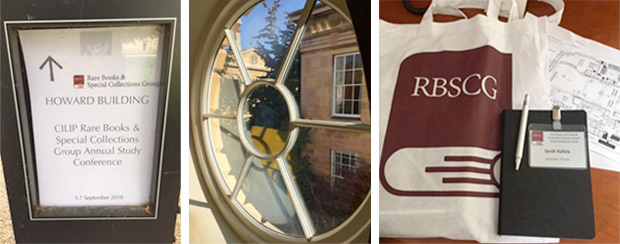
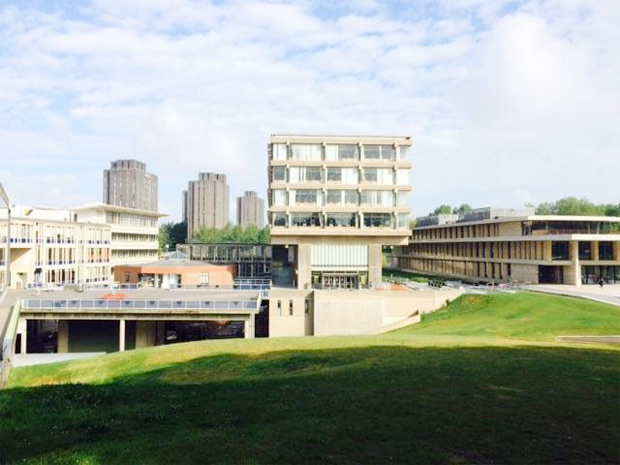
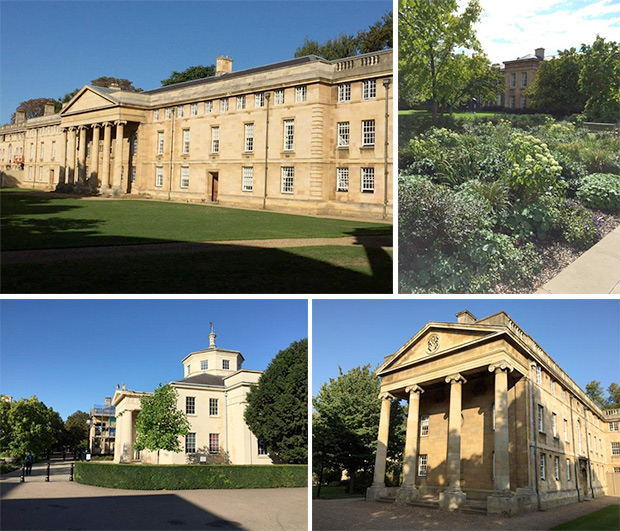
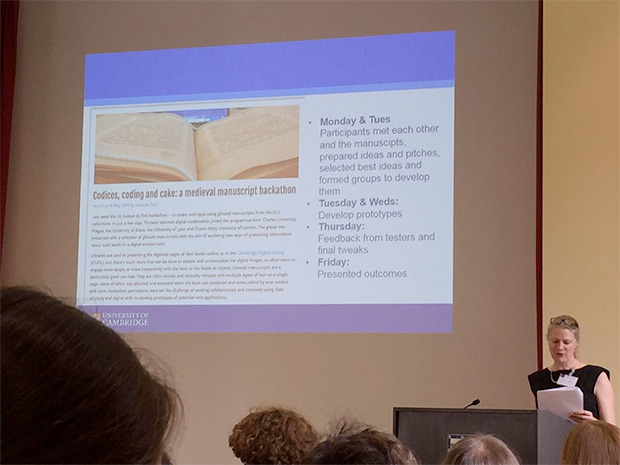
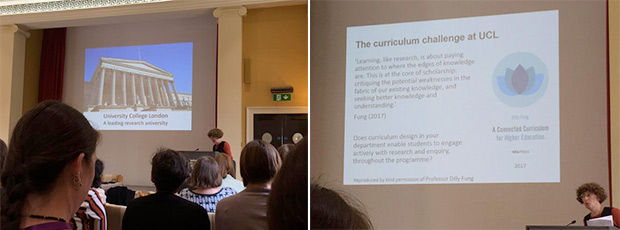
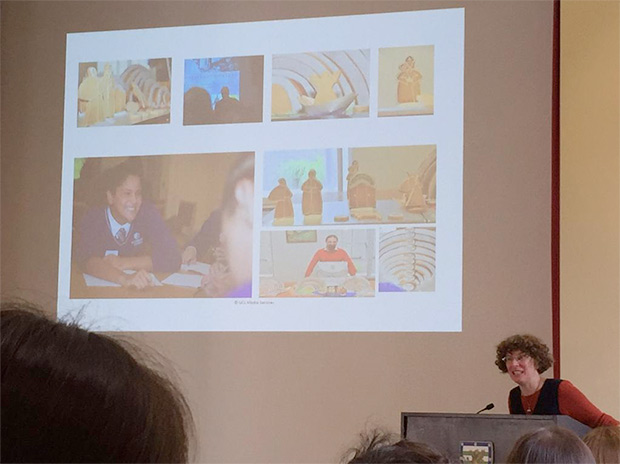
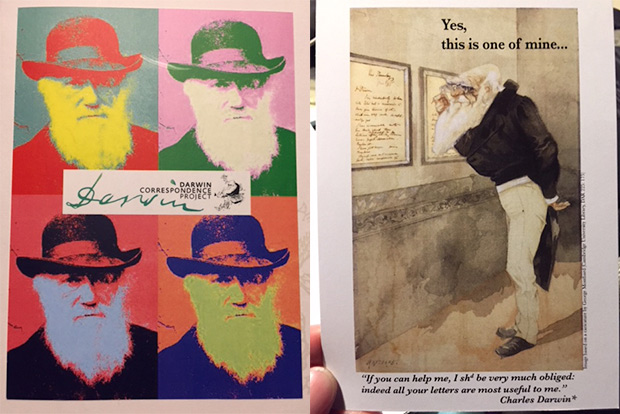
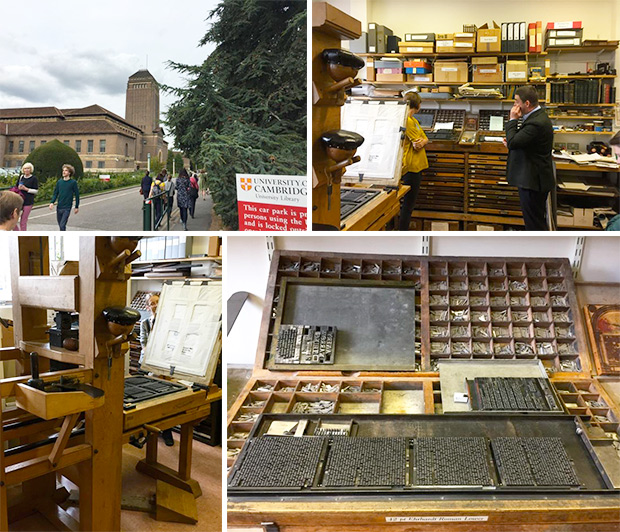
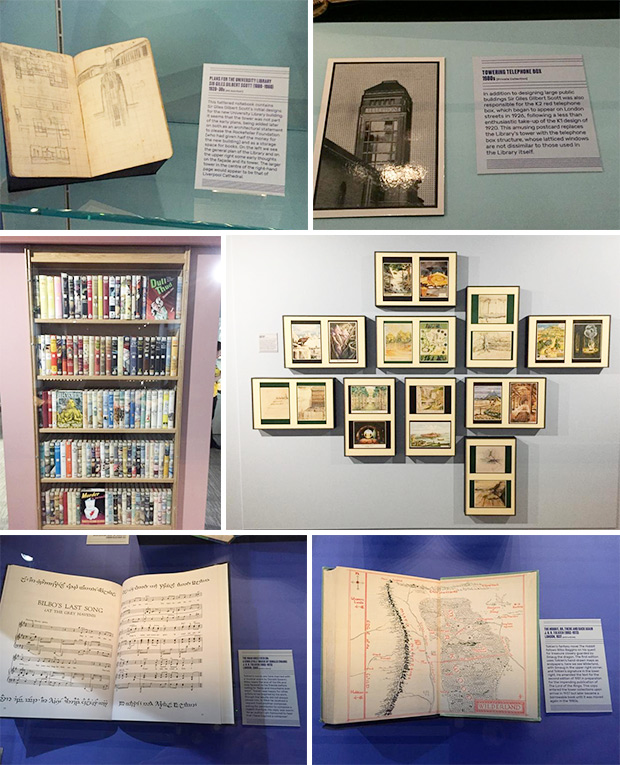
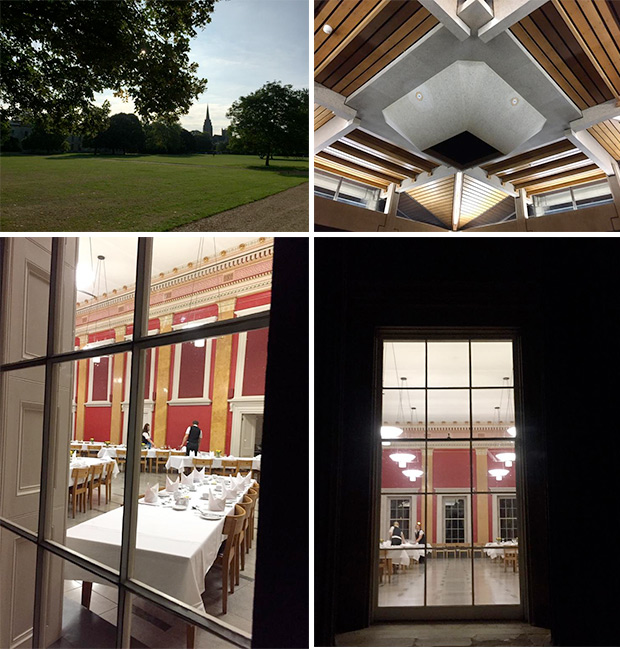
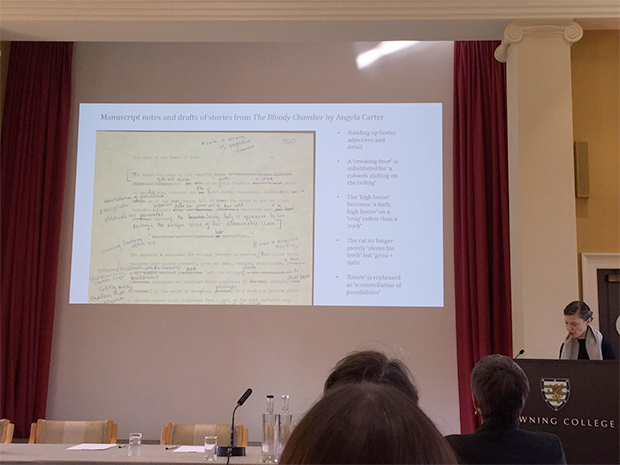
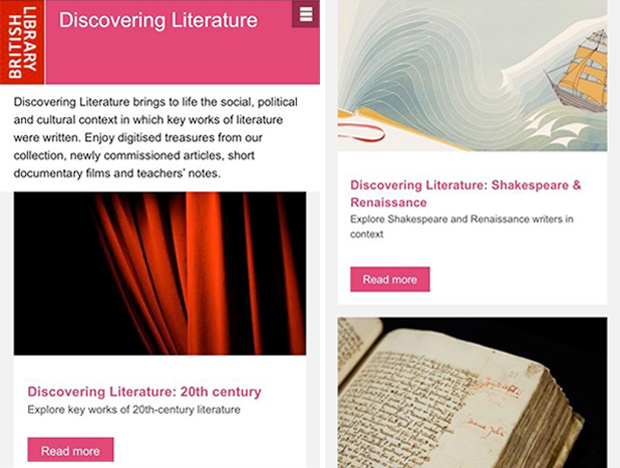
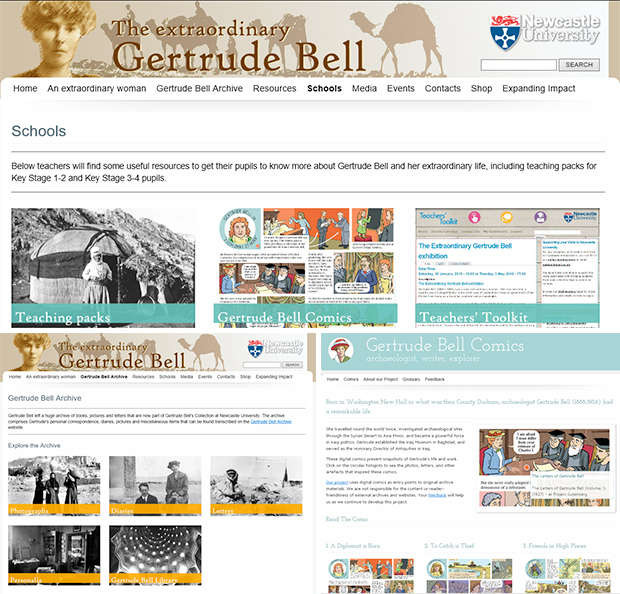
 USE OUR ONLINE
USE OUR ONLINE

